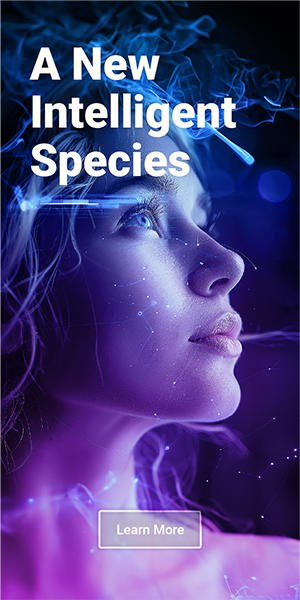Artificial intelligence has become a crucial component of business operations, with many companies adopting AI to enhance efficiency and streamline processes. This trend has also created opportunities for new AI-driven businesses to emerge and thrive in the market.
The launch of ChatGPT by OpenAI in late 2022 has significantly impacted the AI industry, leading to a substantial influx of AI companies, with some new companies entering this cutthroat market and some larger companies introducing AI into their overall product offerings. The increase in the supply and demand for AI solutions is clearly evident, with over 50,000 AI companies currently existing in this sector, according to an article published by Springs.
One area where AI’s impact is truly transformative is social media. We’re not just talking about AI-generated social media posts or AI analytics and recommendation functions integrated into your social media scheduling tool. We are referring to a dedicated, intelligent social media team, customized for your specific needs. They are not just programmed to write engaging posts about how amazing your product is; they truly understand your product in depth. They appreciate the intricate nuances that make it valuable and know exactly how to communicate this value to customers. They also know your customers and understand their needs, expectations, and behaviours. Their delivery, tone, and style align with your brand and resonate with your audience.
What companies are currently using AI for social media?
Sephora is one company that has enlisted the help of an AI persona, the Sephora Reservation Assistant, to assist customers with makeup queries both on their website and their social media platforms. The global beauty retailer utilizes their AI-powered customer service rep on channels such as Facebook Messenger, interacting with customers, providing makeup recommendations, answering queries, and booking in-store appointments. The beauty retailer has enjoyed an 11% increase in booking rates with the help of its AI assistant.
At NeoWorlder, we are empowering our users to leverage advanced AI personas to streamline their operations and enhance customer interactions. Our personas have a wide variety of applications in real estate, auto dealerships, finance, and sales. (While we have not yet started commercializing our social media personas, we plan to do so soon). Our technology allows businesses to automate routine tasks, provide round-the-clock support, and engage with their audience in a personalized and meaningful way.
How do we communicate with these AI personas?
Currently, our AI personas interact with humans through channels like chat (Neo Connect), email, and telephone, as well as within our immersive AI ecosystem, Neo Worlds. We are also planning to expand these communication options to include video calls, social media, and additional telephone capabilities. These AI personas can independently manage conversations and perform tasks autonomously, functioning much like a remote employee but with greater efficiency, accuracy, and speed. They continuously evolve through interactions with humans, storing each input to improve their communication and better meet your needs.
In the context of social media marketing, these intelligent social media personas can be customized to handle a range of tasks, including post generation, campaign building, graphic design, and customer service. They just need the right kind of data to learn from, such as examples of how you want them to interact with people and comments or posts that reflect the tone and style you want them to use. With this data, the AI can be trained using machine learning to understand language, recognize patterns, and make decisions based on what it has learned. Machine learning algorithms work by learning from examples, similar to how humans learn from experience. It’s like teaching a child to differentiate between a cat and a dog. You’d show them pictures of each, and over time, they would learn to recognize the differences by identifying key patterns, like physical features or behaviors.
While some social media platforms (i.e., Facebook) enable the AI to interact with them directly via APIs, (application programming interfaces), The complexity of AI-driven interactions through these APIs is still developing. AI’s ability to engage in more personalized, nuanced ways and create original content is rapidly advancing and many companies are adopting these advanced capabilities to enhance their social media strategies. When it comes to integrating AI personas onto social media platforms via APIs, one must consider the following points:
Each platform has specific API capabilities or limitations that may impact how your AI interacts with the platform, so it is important to understand what functionalities are available to effectively integrate them with your AI.
It doesn’t end after the integration. As social media tools are constantly evolving, so are their features and functions. Therefore, one must constantly stay abreast of the latest trends and ensure their AI is updated as well.
Another consideration to note is data privacy laws and regulations. As users become more concerned about their data security, one must ensure that their AI persona’s data collection and storage mechanisms align with the conditions stated by global data protection bodies such as the GDPR (General Data Protection Regulation), and the POPI (Protection of Personal Information Act), etc.
So, what makes the AI experience unique? Unlike humans, AI personas don’t get tired, don’t require leave, and never complain. They work 24/7, providing prompt support to customers and engaging with user comments almost instantly, making users feel seen, heard, and cared for. This is more advantageous for companies with a global presence.
Based on their training, AI personas can be attentive, empathetic and understanding in their roles, according to OpenAI. For example, if a customer expresses dissatisfaction with a product experience via social media, the AI can display a deep understanding and apology for their issue and even follow up after the issue has been resolved. While this can create the impression of interacting with a real person, it’s important to remember that their human-like responses and displays of emotion are based on data-driven algorithms and not true emotions.
While such advanced solutions enhance the automation, efficiency, and accuracy of your marketing efforts, it is important to note that you likely won’t achieve 100% automation. So, if you thought you could just sit back and let your AI team do all the work, you are sadly mistaken. You still have a crucial role to play in facilitating almost every step of the AI persona content generation process in most cases and ensuring that the AI’s outputs are accurate, as AI is not entirely flawless. Secondly, as new techniques and AI models are introduced, it is important to ensure your social media AI is always up to date to get the best out of it.



